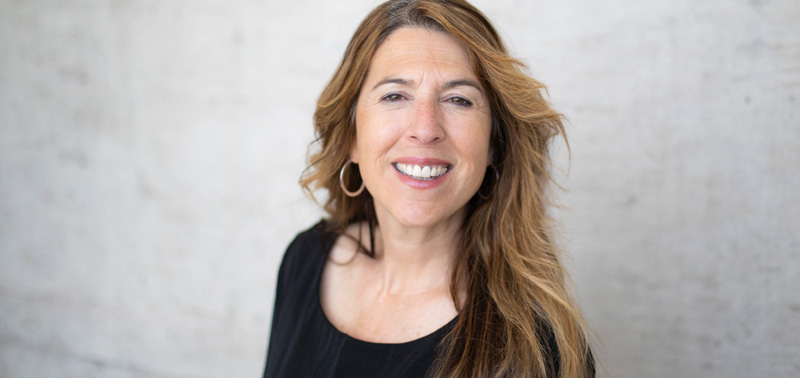With an extensive background and career in design, strategy and innovation studies — including work with global brands such as Sony and Starbucks — Angèle Beausoleil arrived at Rotman in 2018 with a big goal in mind: amplify the School’s business design and innovation expertise.

Professor Angèle Beausoleil
Beausoleil, also the first doctorate in Canada to focus on innovation literacy and leadership using design methods, has since helped Rotman launch a complete business design major for full-time MBA students and introduce a new suite of related courses. She also leads a bustling education centre, the Business Design Initiative (BDI).
“When I arrived at Rotman, business design was a new and emerging construct. It didn’t exist in the academic literature yet, and although there’s a rich history of design thinking at Rotman, it was time to build a curriculum and pedagogy to support it,” says Beausoleil, BDI’s academic director and associate professor of business design innovation in the teaching stream.
“Rotman is the only place where design education lives in the heart of a business school. Helping to translate business design into an academic discipline and business practice here — that was an opportunity right up my alley.”
Recently, Beausoleil published two firsts in the business design space to propel the discipline forward: a textbook and an academic article introducing business design as an emerging pedagogy and a variant of design thinking.
“Good design is good for everyone. We can design better communities, better businesses and better leaders.”
—Angèle Beausoleil
Academic Director, Business Design Initiative
The impact of business design
Business design is a blend of business leadership (managing people and making decisions) and design thinking (generating creative ideas, prototyping and testing). When done right, it can unlock better and more human-centred ways to solve complex problems within an organization.
Beausoleil points to Starbucks, which had been looking at how it could reduce its waste. First, the executive team needed to truly understand the journey of their product in an actual store.
By observing firsthand how hundreds of customers interact with baristas, other customers and the environment — namely the garbage bins — the executive team came away with a deeper understanding of where changes could be made.
One Starbucks executive told Beausoleil that the exercise was like “therapy for your business.” “Good design is good for everyone. Even when I taught the previous Global Executive MBA for Healthcare and the Life Sciences cohort, where learners arrived with a deep understanding of patient-centred care, they left saying they could do so much more to meet patients’ needs,” says Beausoleil.
“We need more empathy and curiosity about things that matter to people — our consumers — to learn how their needs are changing. Many organizations continue to struggle with innovating existing systems and structures to embrace new knowledge and manage teams towards success.
They’re hobbled by a mix of pragmatism, fear and arrogance,” she adds.
Beausoleil says the courage to reimagine organizations is urgent, as global crises like pandemics, climate change and war challenge everything about how people live, and the systems they depend on.
"Seeing crises as ‘creative constraints,’ let’s invest in designing new and better ways to move forward,” she says.
“I hope it's not an elastic band and we snap right back to the old way of doing things. I’m optimistic that we’ll remain a little stretched and remind ourselves that we can design better communities, better businesses and better leaders.”
Think like a design researcher
In 2021, Rotman welcomed Executive-in-Residence Emma Aiken-Klar, who teaches a design research and data storytelling course. In addition to her PhD in cultural anthropology from U of T, she draws from 15 years of industry expertise leading strategic innovation for Fortune 500 companies.
“In a world where employers compete on experience, design research ensures that we keep the costumers and talent we’re designing for at the forefront as we solve problems in strategic ways,” says Aiken-Klar.
Over the years, Rotman graduates who focus on business design have taken on roles in customer experience design research, strategic design research and business design at consultancies where they manage or work with design teams.
Beausoleil teaches a business design practicum course for students in Rotman Commerce, Full-Time MBA and specialized MBA programs.
In the practicum course, students sample what it’s like to do fieldwork, using various research methods to unravel a real-world problem and design a solution that puts people first. She also leads an executive program on business design thinking and doing.
"Just experiencing what it's like to lead research is going to make you a better manager, a better person and a better leader,” she says.